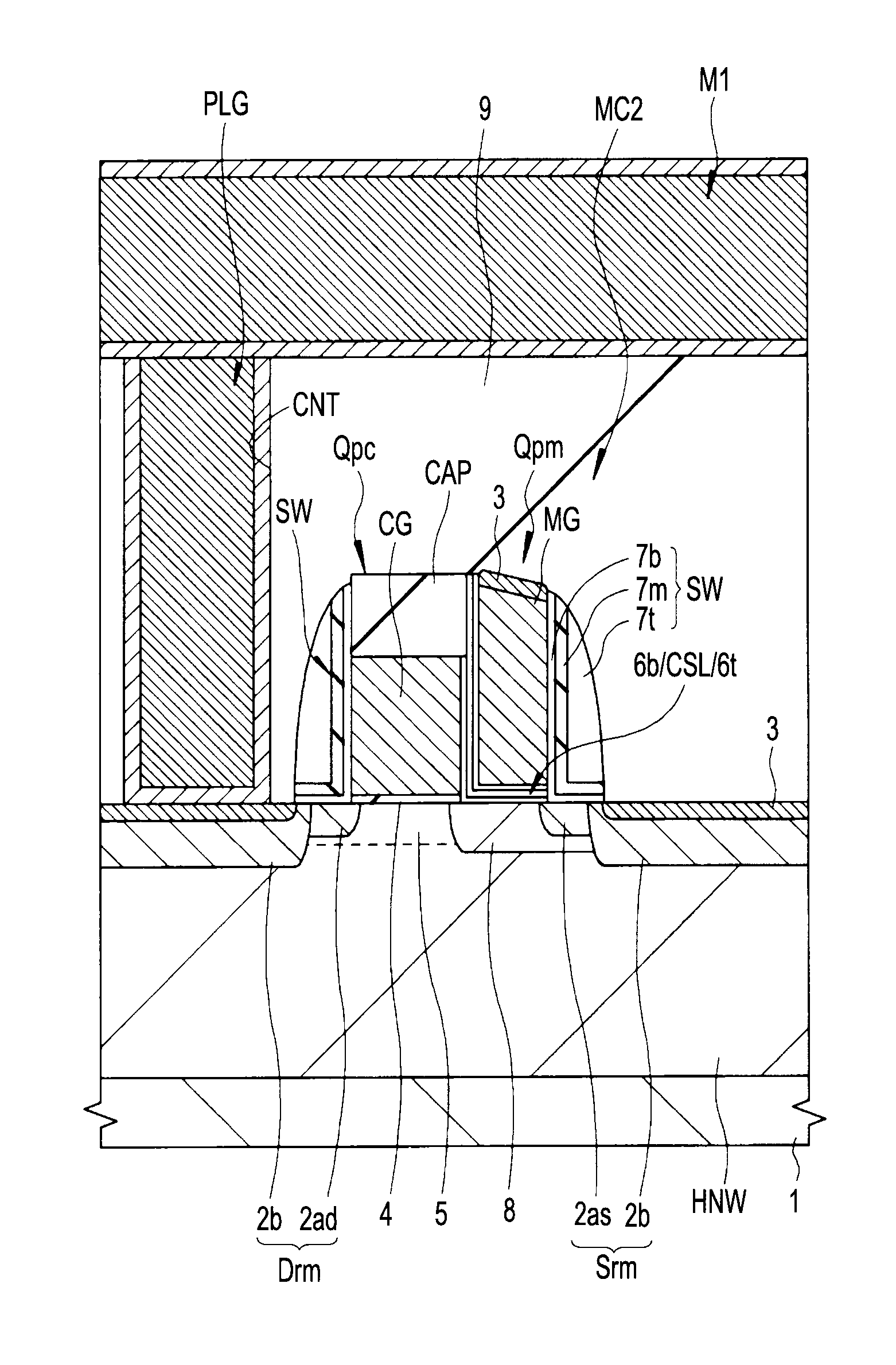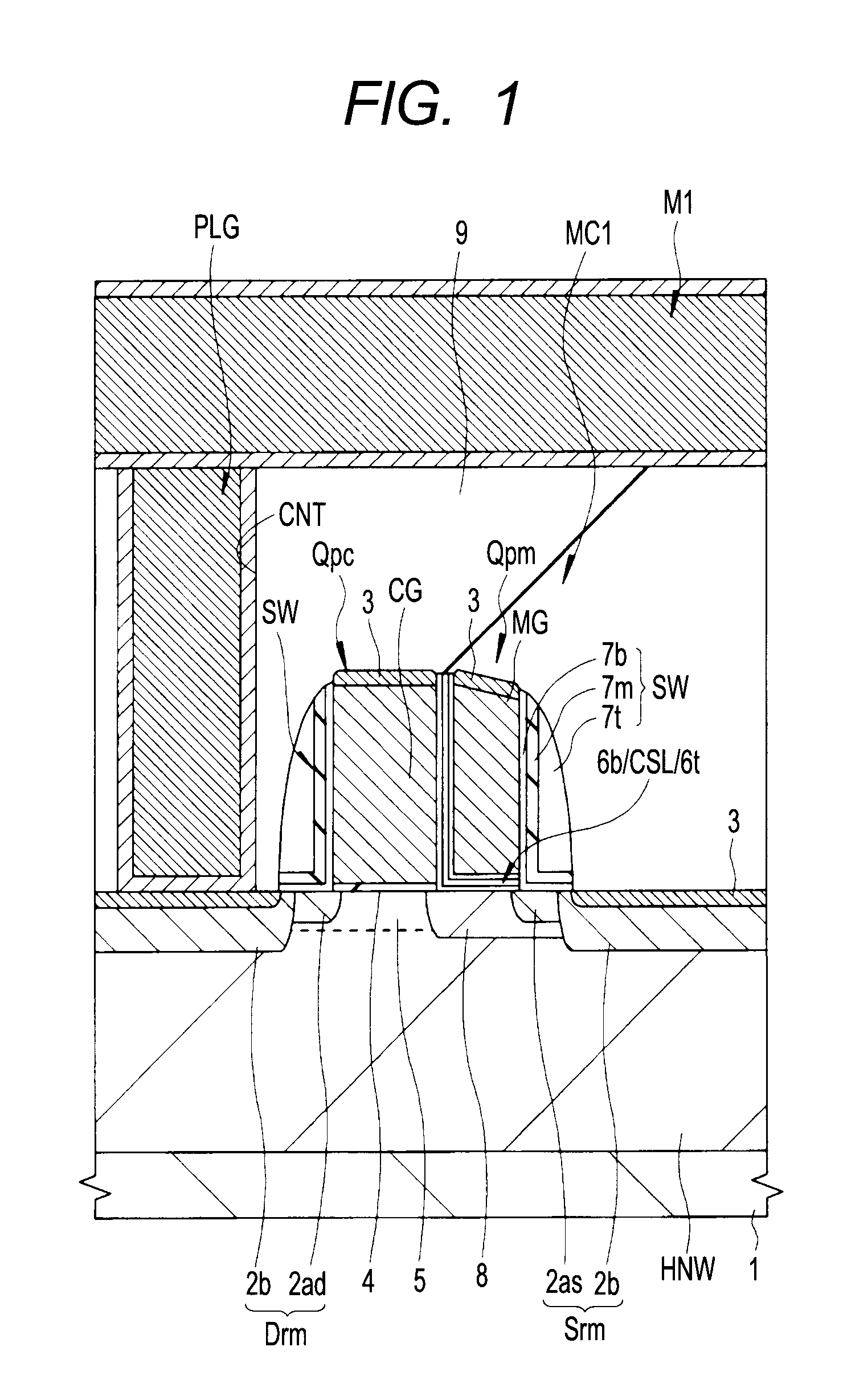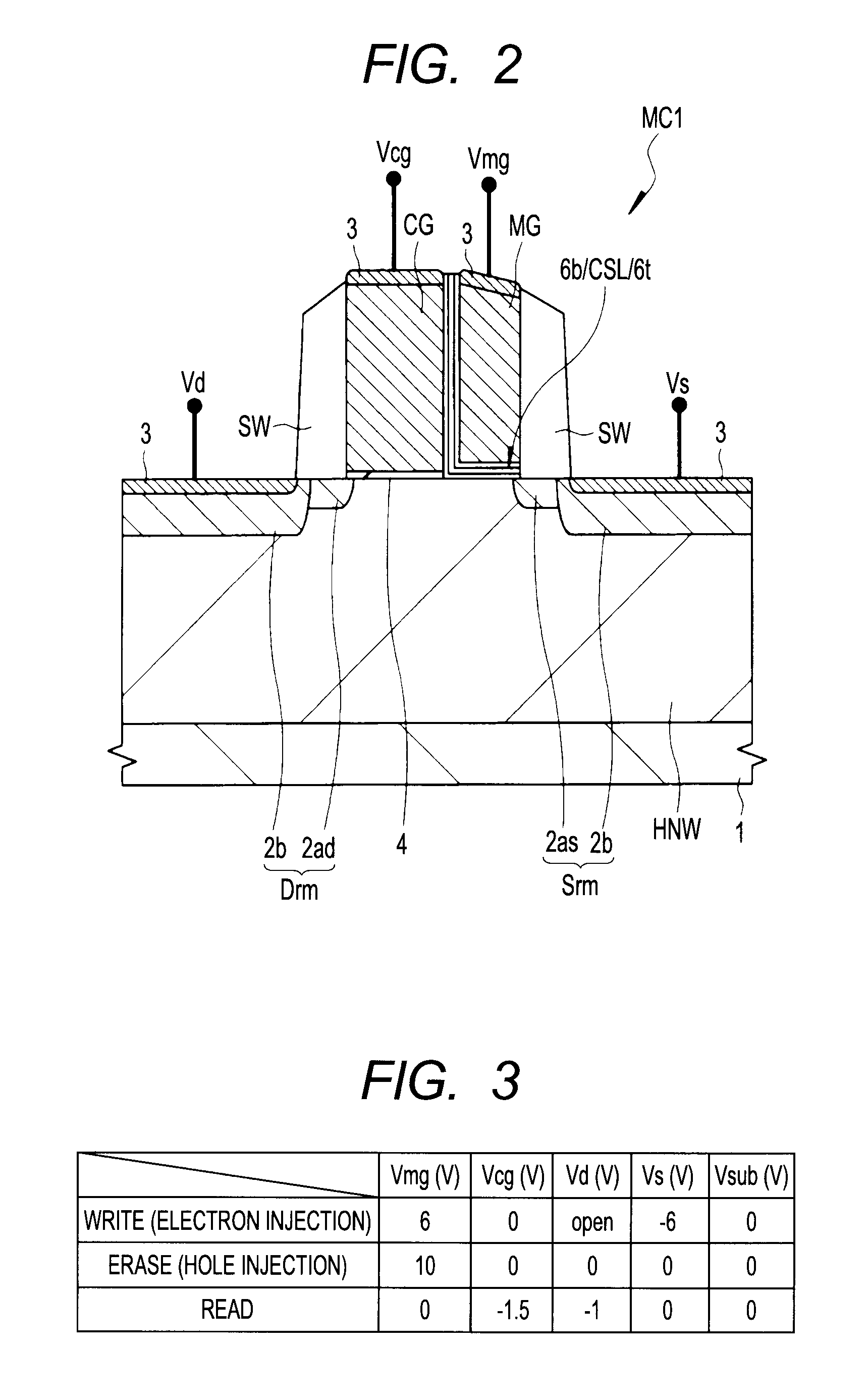Semiconductor device having a nonvolatile memory cell with a cap insulating film formed over a selection gate electrode
a nonvolatile memory cell and non-volatile technology, applied in the field of semiconductor devices, can solve the problems of monos type non-volatile memory cells with various technical problems, all charges stored in storage nodes leak out, etc., and achieve the effect of suppressing the reduction of drive force and improving reliability
- Summary
- Abstract
- Description
- Claims
- Application Information
AI Technical Summary
Benefits of technology
Problems solved by technology
Method used
Image
Examples
first embodiment
(First Embodiment)
[0057]An example of a structure of a nonvolatile memory cell according to a first embodiment will be explained by using FIG. 1. FIG. 1 is a section view of essential parts of a nonvolatile memory cell obtained by cutting a channel along a direction that intersects a memory gate electrode, showing an example of a MONOS type nonvolatile memory cell with a split gate structure in which a memory gate electrode in the form of a sidewall is formed over one side surface of a selection pMIS selection gate electrode.
[0058]As shown in FIG. 1, a semiconductor substrate 1 includes, for example, p-type single crystal silicon and on the side of its main surface (device formation surface), an n-type well HNW is formed. Consequently, the semiconductor substrate 1 in the region where a memory cell MC1 is formed exhibits an n-type conductivity. Further, in the active region of the main surface of the semiconductor substrate 1, a selection pMIS (Qpc) and a memory pMIS (Qpm) of the me...
second embodiment
(Second Embodiment)
[0081]In a second embodiment, as in the first embodiment described above, a MONOS type nonvolatile memory cell with a split gate structure is used as a p-type memory cell including the selection pMIS (Qpc) and the memory pMIS (Qpm). A difference from the first embodiment described above lies in fact that a cap insulating film (CAP) is formed over the top surface of the selection gate electrode CG of the selection pMIS (Qpc). By the cap insulating film (CAP), it is possible to cause compression stress to occur in the channel region (between the source region Srm and the drain region Drm) under the selection gate electrode CG. The p-type memory cell uses holes the mobility of which is lower than that of electrons at the time of read, and therefore, there is a possibility that the operation speed may be reduced compared to the n-type memory cell. Because of this, the cap insulating film is formed over the top surface of the selection gate electrode CG and compression...
third embodiment
(Third Embodiment)
[0132]In a third embodiment, as in the second embodiment described above, a MONOS type nonvolatile memory cell with a split gate structure is used as a p-type memory cell including the selection pMIS (Qpc) and the memory pMIS (Qpm), and over the top surface of the selection gate electrode CG of the selection pMIS (Qpc), the cap insulating film CAP is formed, which causes compression stress to occur, in the channel region (between the source region Srm and the drain region Drm) under the selection gate electrode CG. A difference from the second embodiment described above lies in the fact that an insulating film having compression stress is formed over the p-type memory cell formed in the memory region and over the low voltage system pMIS and the high voltage system pMIS formed in the peripheral circuit region, and an insulating film having tensile stress is formed over the low voltage system nMIS and the high voltage system nMIS formed in the peripheral circuit regi...
PUM
 Login to View More
Login to View More Abstract
Description
Claims
Application Information
 Login to View More
Login to View More - R&D
- Intellectual Property
- Life Sciences
- Materials
- Tech Scout
- Unparalleled Data Quality
- Higher Quality Content
- 60% Fewer Hallucinations
Browse by: Latest US Patents, China's latest patents, Technical Efficacy Thesaurus, Application Domain, Technology Topic, Popular Technical Reports.
© 2025 PatSnap. All rights reserved.Legal|Privacy policy|Modern Slavery Act Transparency Statement|Sitemap|About US| Contact US: help@patsnap.com



